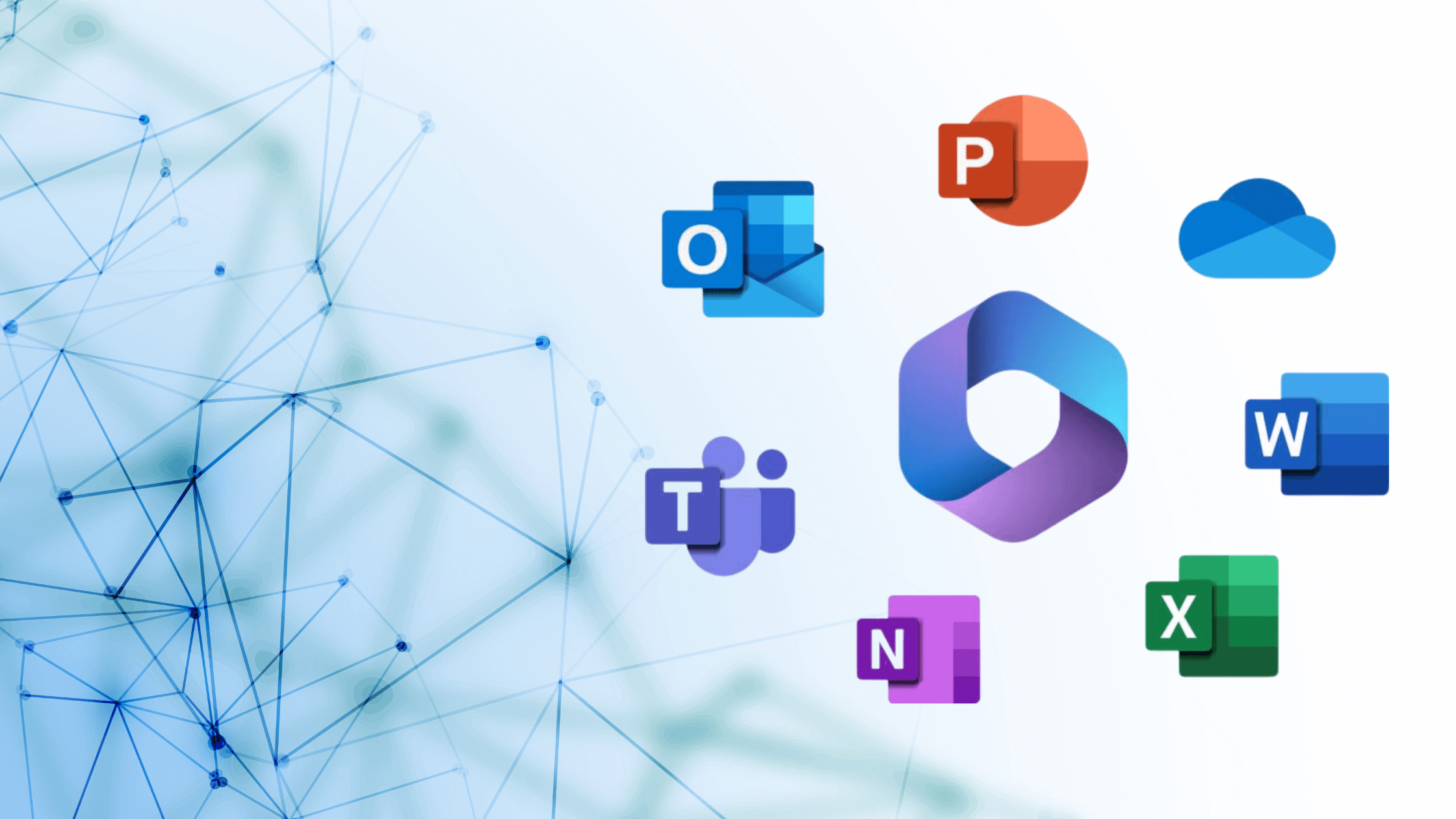Streamline Your Small Business with Cloud Solutions
Introduction
Are you a small business owner looking for ways to streamline your operations? Have you considered cloud computing for small businesses as a potential solution?
Cloud computing services for small businesses are quickly becoming a go-to for their ability to store and retrieve data securely, reduce hardware requirements and offer scalable solutions that businesses can easily adjust as their needs change.
Cloud computing solutions can offer small businesses many benefits. These range from improved connectivity and collaboration between employees and clients, to cost savings that are reflected in the organization’s bottom line.
In this blog post, we’ll cover the small business cloud computing options available and how they can help your business.
What is Cloud Computing?
Cloud computing is a type of technology that enables businesses of any size to compute, store and access data on a remote server. This eliminates the organization’s need for physical servers. With the right cloud computing solutions and an internet connection, small business owners can securely store and access data, software and applications from any device, anywhere in the world.
Popular small business cloud solutions include Microsoft Azure, Amazon Web Services (AWS), Microsoft 365, and OneDrive. However, there are countless cloud business solutions available in today’s technology market.
Benefits of Cloud Computing for Small Businesses
Cloud computing is an increasingly used technology for small businesses because it offers a wide range of advantages to help streamline operations. Key benefits include scalability, a secure environment, cost savings, accessibility and automated backups.
Cloud computing can help organizations become more efficient, increase their operational capacity and reach new levels of success. Additionally, should companies choose to store their data with a reliable service provider, they have the benefit of automatic software upgrades, ongoing help desk support and emergency IT assistance.
At the same time, by hosting data in the cloud, businesses can avoid the costs associated with maintaining hardware onsite. Cloud computing greatly simplifies the technology process for small business owners, allowing them the IT flexibility and advantages of a bigger organization at a fraction of the cost.
Streamlining Business Processes with Cloud Solutions
Running an efficient small business is essential for success, and cloud solutions can streamline business processes. Here are a few cloud computing benefits.
Automation
One advantage of cloud computing is automation potential. Automation helps streamline cumbersome manual processes and tedious administrative tasks. This can free up more time for employees to focus on tasks that require their skillsets and creativity.
Cloud solutions like financial software, customer relationship management (CRM) and automated task management use automation to streamline business processes. This reduces the time and effort required to complete basic tasks, such as sending invoices, tracking customers and updating data. Additionally, automation can help reduce human errors while providing better visibility.
Improved Collaboration
Cloud computing for small businesses enables workers to easily collaborate and communicate. It allows staff and any other business users to sync across devices and access content and documents nearly anywhere, at any time.
Cloud computing reduces time wasted in the communication process, as team members can streamline sharing information throughout the organization. In addition, the ability to store data on the cloud allows employees to have access to the most up-to-date information.
Optimized Security
Last, but not least, cloud solutions may have better security protections than many on-premises solutions. As data continues to move away from local storage in physical locations and onto the cloud, businesses are seeing an increase in protection against both natural disasters and malicious attacks.
Moreover, cloud systems offer users built-in cybersecurity measures such as two-factor authentication, encryption algorithms and single sign-on capability. This helps to ensure that you stay safe on the cloud and data remains secure no matter where it is stored or accessed.
Utilizing a carefully designed cloud security strategy can help your small business reduce security risk and remain competitive.
Exploring Cloud Solutions for Small Businesses
Storage and Backup
Cloud storage and backup solutions can help streamline your small business operations and reduce hardware and IT-related expenses. Utilizing cloud storage services such as OneDrive, AWS and Azure, you can quickly store and synchronize your data and access files from anywhere. (Check out another blog post on choosing cloud storage.)
In addition, cloud hosting can provide a more secure and cost-effective approach to data storage and backup. With reliable and secure cloud-based services, your company will be better protected and efficient, giving you more time to focus on your business objectives.
Professional Software
Professional cloud solutions, such as Microsoft 365 – including cloud-based email services – Microsoft Teams and Zoom, are becoming increasingly popular among small businesses. Not only are these powerful solutions great for internal collaboration and communication, but they are relatively inexpensive to implement.
For small business owners who are exploring cloud solutions, a CRM can be another easy way to increase efficiency. With an integrated CRM, users can quickly access and manage customer and prospect data, leading to streamlined customer service and selling processes. Also, customer data can be used to generate useful insights and make more informed decisions.
Overall, professional cloud solutions can be the difference between staying competitive and falling behind in today’s fast-paced digital world.
Cloud Security
Cloud computing and cloud services have revolutionized the way businesses operate today, with advanced security solutions among the most valuable of these services.
Cloud-based security programs offer businesses a comprehensive set of features to provide critical data and system security, along with robust programs to shore up cybersecurity and protect data from malicious attacks.
Companies of all sizes benefit from the protection and peace of mind that cloud-based security programs provide, allowing them to streamline operations and better protect their business.
Calculating the Benefits of Cloud Computing for Small Businesses
As a small business, it’s essential to calculate the benefits of cloud computing to make sure any solutions you’re considering are the right ones for your needs.
Cloud solutions may dramatically reduce the need for in-house IT support, enabling business owners to focus their resources on what really matters. Moreover, cloud computing can provide significant savings on energy costs, storage costs and hardware costs.
Also, moving to the cloud can help ensure business continuity and offer the flexibility to scale up or down as needed, which can translate to further cost savings over time.
Selecting Cloud Solutions
Selecting cloud solutions for small businesses is an important decision that needs to be made after careful consideration.
First, in order to make the right decision when it comes to cloud computing for a small business, it is essential to understand what your business requires and the kind of cloud services that are best suited for it. Do you need cloud hosting or storage? An email platform? A CRM? Once you have a better understanding of what you need, you can start researching and comparing various cloud solutions that cater to your business’ needs.
Make sure to select providers who offer quality services and ample support. By understanding your business needs and choosing wisely, you can ensure that you have the right cloud solution to streamline your small business operations.
Adopting Cloud-Based IT Solutions
For small business owners, cloud services can offer a number of advantages: lower start-up costs, increased scalability, increased agility and more. If you’re planning to migrate to cloud-based IT solutions, consider the following tips.
Moving Data from On-Premises Storage to the Cloud
Migrating data from an on-premises storage system to the cloud can help to streamline business operations. The key to a successful data migration is having a plan.
A good plan should include data assessment and analysis, requirements for cloud security and compliance, and a plan for testing and validating the migration.
Additionally, consider using cloud-native capabilities such as backup and archiving to further streamline cloud storage operations and to manage the data migration process more effectively.
Setting Up Cloud Security Measures
All businesses need to take proper precautions when setting up cloud computing services to ensure its data is protected, as well as its network. Cybersecurity should be the top priority when it comes to any cloud-based services, as failure to do so could lead to data loss, breaches and other security issues.
Here are some tips to help small businesses set up effective cloud security measures:
- Ensure all data is encrypted, both in transit and at rest.
- Utilize two-factor authentication for all access to cloud services.
- Regularly back up data on the cloud in order to avoid partial or total data loss.
- Restrict access or set up access permissions to ensure authorized users only have access to applicable services.
- Utilize strong passwords and update them regularly.
- Monitor activity and generate reports to review and view any possible suspicious activity.
If properly implemented, each of these security measures can help small businesses protect their data and cloud services.
Preparing Your Employees for the Transition
As a small business, the move to cloud computing can be an exciting transition. However, there are certain considerations to take into account to ensure that your staff is up to date on the new services and tools to use in their roles.
Providing proper employee IT training is essential during the onboarding process. This includes setting up expectations on the cloud services being used, the terms of services that come with it, and the security measures in place.
Additionally, familiarize your staff with the cloud computing applications they’ll be using, whether its Microsoft Office 365, OneDrive or another app, and be prepared to answer questions.
With appropriate employee IT training, businesses can manage their cloud computing experience over time and streamline their organization and operations for a more efficient small business.
Staying Up to Date with Cloud Providers
Learning about Updates and New Features
When it comes to learning about the latest in cloud computing and cloud services for your small business, there are many great resources available. Whether it’s a blog post, a podcast or an online forum – hosted by your cloud service provider or an industry expert – there are plenty of sources to help you stay informed.
Regardless of the type of cloud service provider you choose, staying up-to-date on the latest advances in cloud computing can help you streamline operations, stay competitive and get the most out of your business cloud services.
Keeping Security Measures Current
When switching to cloud technology to streamline a business, the most important factor to consider is security. As cloud storage, hosting and services become more popular, it is essential that businesses recognize the importance of keeping their security measures up to date.
It is important to invest in security tools and checkpoints, as well as regularly reviewing IT policies, passwords and access levels. Additionally, businesses should consider the privacy and security of data and applications, as well as the people responsible for managing cloud services.
The best way to ensure appropriate and current cloud security measures is to seek help from experienced experts in the field, like Atlas. Ultimately, to make the most of cloud technologies, businesses must take steps to protect their data to make sure their operations remain secure.
Understanding Cloud Licensing Agreements
When navigating cloud licensing agreements, it is important to understand each element included so there are no surprises. Consider reading through the entire agreement, as well as the limitations of each service; these can all affect your ability to use the solutions offered when outsourcing your services.
Keep an eye out for details such as user access controls, automated backup and security features, which can be useful in understanding the licensing agreement to ensure a seamless integration of cloud services into your operations.
Additionally, be sure to understand the long-term costs, such as pricing and penalties for ending an agreement early. Consulting with a lawyer experienced in cloud contracts can be helpful before signing the agreement.
Conclusion
Cloud hosting and storage, such as Amazon Web Services and OneDrive, offer a number of powerful tools to streamline small business operations. The same is true for cloud-based software offering professional and cybersecurity tools.
By moving critical data and applications to the cloud, companies can reduce hardware and labor costs, increase efficiency and remain flexible during times of rapid change. Cloud platforms allow businesses to make real-time updates, manage customer relationships on a large scale, and access data from anywhere and anytime.
In short, when strategically selected, cloud solutions can be the perfect solution for entrepreneurs looking to maximize their limited resources.
Need help migrating to the cloud? Contact us today to learn how we can help you have a smooth, secure transition.





